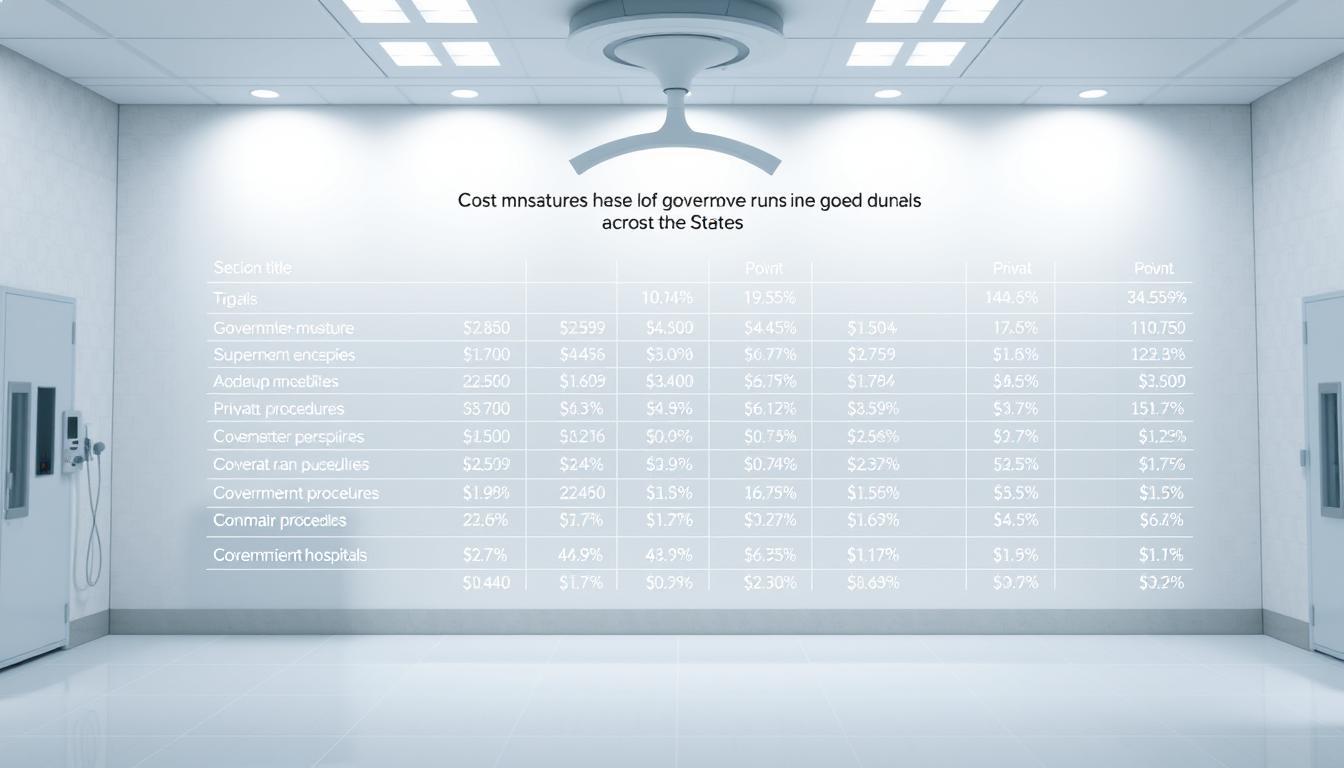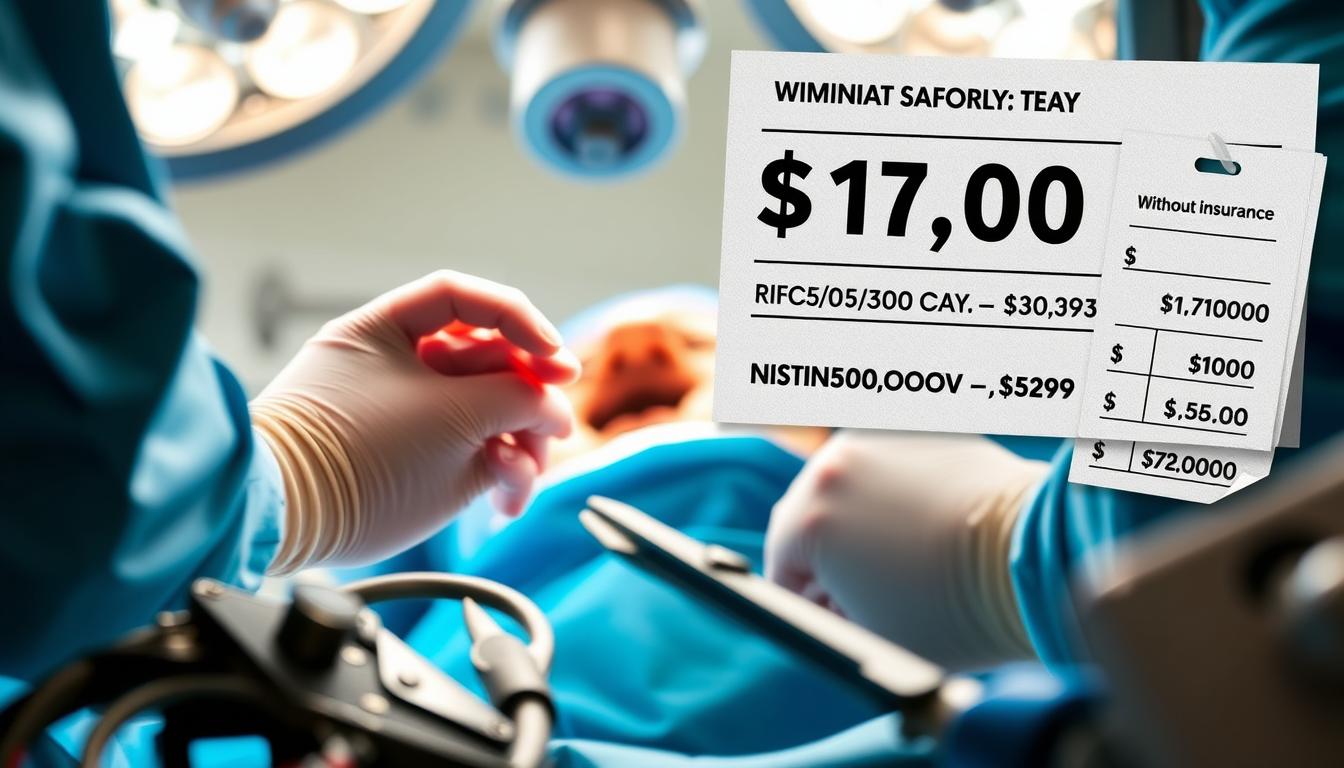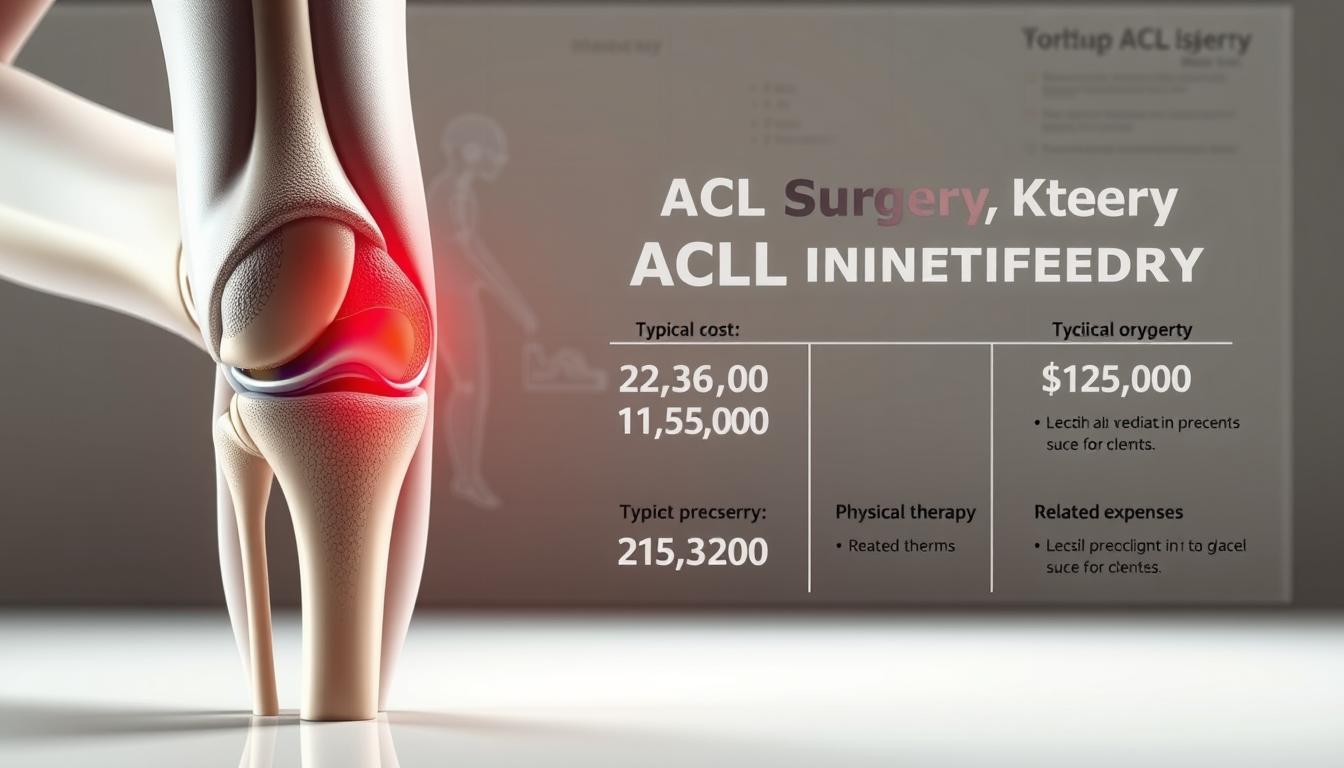When it comes to medical procedures, cost is a significant factor for many individuals in the United States. The debate surrounding the affordability of surgeries in government hospitals versus private institutions is ongoing. Government hospitals are often perceived as more affordable, but is this always the case?
The USA healthcare system is complex, with varying costs associated with surgical procedures across different types of hospitals. Understanding these differences is crucial for patients seeking medical care.
Let’s explore the factors influencing surgery costs and compare the expenses associated with government and private hospitals.
Key Takeaways
- Government hospitals may offer more affordable surgical options.
- Private hospitals often provide specialized care with potentially higher costs.
- Insurance coverage plays a significant role in determining out-of-pocket expenses.
- Location and type of surgery are critical factors in cost variation.
- Comparing costs between government and private hospitals is essential for informed decision-making.
The US Healthcare Landscape
Understanding the US healthcare landscape requires a look into its diverse structure, including government and private hospitals. The system is complex, with various options available for patients seeking medical care, including surgeries. The choice between public and private healthcare facilities often depends on factors like cost, insurance coverage, and personal preference.
The US healthcare system is known for its high-quality care, but it is also criticized for its high costs. Government hospitals and private facilities coexist, offering different benefits and drawbacks. Government hospitals are generally more affordable, making them an attractive option for those seeking affordable surgery options.
Public vs. Private Healthcare Facilities
Public healthcare facilities are funded by the government and offer essential medical services at a lower cost. Private healthcare facilities, on the other hand, are profit-driven and often provide more luxurious amenities and shorter waiting times. The key difference lies in their funding models and service delivery.
| Facility Type | Funding Model | Service Characteristics |
|---|---|---|
| Public | Government funded | Essential services, lower cost |
| Private | Profit-driven | Luxurious amenities, shorter waiting times |
Types of Government Hospitals in the USA
The USA has various types of government hospitals, including Veterans Affairs Medical Centers, county hospitals, and public hospital districts. These hospitals provide a range of medical services, from emergency care to specialized surgeries, often at a lower cost compared to private facilities, thus affecting government hospital procedure costs.
Cost of Surgery in Government Hospital USA: Overview
Surgical expenses in the USA can vary widely depending on the type of hospital, with government hospitals often being considered for their cost-effectiveness. This variability is due to several factors, including the type of procedure, hospital location, and the patient’s insurance status.
Government hospitals, including those under the Veterans Affairs and county hospitals, offer surgical services at costs that are generally lower than private hospitals. This is largely due to their funding models and the absence of profit motives.
Average Cost Differences Between Government and Private Hospitals
The average cost of surgeries in government hospitals is significantly lower compared to private hospitals. For instance, a study comparing surgical costs found that government hospitals charged 30-50% less for similar procedures.
| Procedure | Government Hospital Average Cost | Private Hospital Average Cost |
|---|---|---|
| Knee Replacement | $15,000 | $30,000 |
| Cataract Surgery | $1,500 | $3,000 |
| Hernia Repair | $4,000 | $8,000 |
Insurance Coverage and Government Facilities
Insurance coverage plays a crucial role in determining the out-of-pocket expenses for patients undergoing surgery in government hospitals. Most government hospitals accept major insurance plans, including Medicare and Medicaid, making surgeries more accessible to a wider population.
Factors Affecting Surgical Costs in Different Hospital Settings
Several key elements contribute to the overall expense of surgical procedures in different hospital settings. The cost of surgery can be influenced by a variety of factors, including the type of hospital, the complexity of the procedure, and the resources required.
Administrative costs and profit margins play a significant role in determining the final cost of surgery. Government hospitals typically have lower administrative overhead compared to private hospitals, which can result in lower costs for patients.
Administrative Overhead and Profit Margins
Government hospitals are non-profit institutions, which means they do not have to factor in profit margins when determining surgical costs. This can lead to significant savings for patients. In contrast, private hospitals have higher administrative costs and aim to make a profit, contributing to higher surgical expenses.
Staffing and Resource Allocation
The allocation of staff and resources also impacts surgical costs. Government hospitals often have different staffing models and resource allocation strategies compared to private hospitals, affecting the overall cost of care.
Geographic Location Impact
The geographic location of a hospital is another crucial factor that influences surgical costs. Hospitals in urban areas tend to have higher costs compared to those in rural areas due to differences in operating expenses, staffing costs, and demand for services.
Common Surgeries: Cost Comparison Analysis
A comparison of surgical costs in government versus private hospitals reveals substantial differences. This analysis is crucial for patients seeking affordable surgical solutions in the USA. The costs associated with various surgical procedures can vary significantly between these two types of healthcare facilities.
Orthopedic Procedures
Orthopedic surgeries, such as hip replacements and knee surgeries, are generally more affordable in government hospitals. For instance, a hip replacement surgery can cost up to 30% less in a government hospital compared to a private facility.
Cardiovascular Surgeries
Cardiovascular surgeries, including coronary artery bypass grafting, also show a significant cost difference. Government hospitals often offer these procedures at a lower cost due to government funding and subsidies.
General Surgical Procedures
General surgical procedures, such as appendectomies and hernia repairs, are also more cost-effective in government hospitals. The cost savings can be attributed to lower operational costs and government hospital surgery rates.
Emergency vs. Planned Surgeries
The cost difference between emergency and planned surgeries is another critical aspect. Emergency surgeries tend to be more expensive due to the urgent nature of the procedures. However, government hospitals still offer more affordable options for both emergency and planned surgeries.
Quality of Care Considerations
When considering budget-friendly surgery in the USA, the quality of care is a paramount concern. Government hospitals offer a cost-effective alternative, but how do they compare to private hospitals in terms of care quality?
Outcome Comparisons Between Government and Private Hospitals
Studies have shown that government hospitals can achieve comparable outcomes to private hospitals for various surgical procedures. For instance, a study on orthopedic surgeries found similar recovery rates and complication rates between the two.
| Surgical Procedure | Government Hospitals | Private Hospitals |
|---|---|---|
| Orthopedic Surgeries | 95% success rate | 96% success rate |
| Cardiovascular Surgeries | 92% success rate | 93% success rate |
Patient Experience Differences
Patient experience can vary significantly between government and private hospitals. Private hospitals often offer more personalized care and amenities, while government hospitals focus on efficient, high-quality care.
“The quality of care at government hospitals is often on par with that of private hospitals, but the patient experience can differ significantly.” – HealthCare Review
Navigating Government Hospital Systems
Navigating the complex landscape of government hospitals can be daunting, but it’s a necessary step for those seeking cost-effective surgery options in the USA. Government hospitals, including Veterans Affairs Medical Centers and county/public hospitals, offer surgical services at reduced costs compared to private facilities.
Veterans Affairs Medical Centers provide comprehensive healthcare services, including surgical procedures, specifically to eligible veterans. These centers are renowned for their specialized care and state-of-the-art facilities.
Veterans Affairs Medical Centers
Veterans Affairs Medical Centers are a crucial part of the US healthcare system, offering a range of surgical services. Eligibility is generally limited to veterans who meet specific service requirements.
County and Public Hospitals
County and public hospitals serve the broader community, providing essential surgical care. These hospitals often have programs for those who are uninsured or underinsured, making healthcare more accessible.
Accessing Affordable Surgery Options
For individuals seeking affordable surgery options, understanding the nuances of government hospital procedure costs is crucial. Government hospitals offer a range of surgical procedures at significantly lower costs compared to private facilities, making them an attractive option for many.
To access these affordable options, it’s essential to understand the eligibility criteria and available financial assistance programs.
Eligibility Requirements
Eligibility for affordable surgery in government hospitals typically depends on factors such as income level, insurance status, and the type of surgical procedure required. Many government hospitals have sliding scale fees based on income, making healthcare more accessible to low-income individuals.
Financial Assistance Programs
Various financial assistance programs are available to help cover the costs of surgical procedures in government hospitals. These include Medicaid, Veterans Affairs programs for eligible veterans, and charity care programs offered by some hospitals.
“Financial assistance can significantly reduce the burden of medical expenses, making necessary surgeries more accessible.”
- Medicaid
- Veterans Affairs programs
- Charity care programs
Understanding and utilizing these programs can help individuals access the surgical care they need without incurring significant financial hardship.
Conclusion
Understanding the cost of surgery in government hospitals versus private facilities is crucial for making informed decisions about healthcare in the USA. The analysis of surgical expenses in USA reveals that government hospitals offer a cost-effective alternative without compromising on the quality of care.
Government hospitals, including Veterans Affairs Medical Centers and county hospitals, provide affordable surgery options due to lower administrative overhead and different staffing models. Insurance coverage also plays a significant role in reducing out-of-pocket expenses for patients.
By navigating the government hospital system and understanding eligibility requirements and financial assistance programs, individuals can access necessary surgical care at a lower cost. This makes government hospitals a viable option for those seeking to manage surgical expenses in the USA.
FAQ
What is the average cost of surgery in a government hospital in the USA?
The average cost of surgery in a government hospital varies widely depending on the type of procedure, location, and insurance coverage. However, government hospitals generally offer more affordable options, with costs significantly lower than those in private hospitals.
Are government hospitals cheaper for surgical procedures than private hospitals?
Yes, government hospitals are often cheaper for surgical procedures due to lower administrative overhead and the absence of profit margins. This makes them an attractive option for those seeking affordable surgical solutions.
Does insurance coverage affect the cost of surgery in government hospitals?
Yes, insurance coverage can significantly impact the cost of surgery in government hospitals. Many government hospitals accept various insurance plans, and having coverage can reduce out-of-pocket expenses.
What factors influence the cost of surgery in government versus private hospitals?
Factors such as administrative costs, staffing, resource allocation, and geographic location influence the cost of surgery. Government hospitals typically have lower administrative costs and staffing expenses, contributing to lower overall costs.
Can I access financial assistance for surgery in a government hospital?
Yes, many government hospitals offer financial assistance programs or charity care for eligible patients. These programs can help reduce or eliminate the cost of surgery for those who cannot afford it.
How do I determine my eligibility for affordable surgery options in government hospitals?
Eligibility for affordable surgery options in government hospitals depends on factors such as income level, insurance status, and the type of procedure needed. Patients can contact the hospital’s financial assistance department to discuss their eligibility and available options.
Are there any additional costs associated with surgery in government hospitals?
While government hospitals offer affordable surgery options, there may be additional costs for services such as anesthesia, laboratory tests, or post-operative care. Patients should discuss these potential costs with their healthcare provider.
How do government hospitals compare to private hospitals in terms of surgical outcomes?
Studies have shown that government hospitals can provide comparable surgical outcomes to private hospitals, especially for common procedures. The quality of care is often maintained through rigorous standards and protocols.





One thought on “Is Surgery Cheaper in Government Hospitals? USA Cost Comparison”